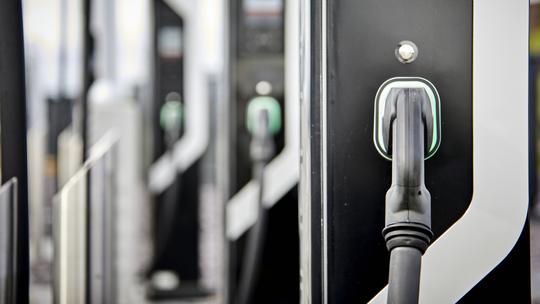
Arizona has earned a national reputation as an electric vehicle (EV) heavyweight, with a vibrant ecosystem of EV manufacturers and showrooms and above-average EV ownership.
Plans are in place to extend that leadership even further.
In September, Arizona became one of the first states in the U.S. to have its Electric Vehicle Infrastructure Deployment Plan approved by the Federal Highway Administration. The plan, which is spearheaded by the Arizona Department of Transportation and included input from agencies and stakeholders such as the Arizona Commerce Authority, positions Arizona to secure $76.5 million to build out its electric-vehicle charging network along interstate highways.
Ranking 14th in population size, Arizona is a top-seven state for the rate of EV ownership, with nearly 41,000 registered electric vehicles and counting on the road.
The state is home to advanced EV manufacturers such as Lucid, Nikola, ElectraMeccanica, Atlis Motor Vehicles and Zero Electric Vehicles.
Suppliers are flocking to the state, too. UACJ Automotive Whitehall Industries of Ludington, Michigan, is investing $60 million to build a factory to build EV parts in Flagstaff and hiring 350 workers. In Casa Grande, Jomi Engineering Group of Canada has purchased a building where the company will manufacture EV assembly components.
And then there’s the state’s rapidly expanding battery industry. Arizona has become a magnet for advanced energy storage technology with the additions of battery manufacturers such as KORE Power in Buckeye and LG Energy Solution in Queen Creek, to battery recyclers like Li-Circle in Gilbert and Cirba Solutions in Eloy and cutting-edge startups such as Ampcera in Tucson.
“Under Gov. Ducey’s leadership, Arizona has established itself as a hub of EV manufacturing, testing and supply-chain excellence,” said Sandra Watson, president and CEO of the Arizona Commerce Authority. “Establishing this network in Arizona will only accelerate our EV industry and advance this important technology.”
A key element of ADOT’s plan focuses on alleviating “range anxiety” among drivers by closing gaps in the charging network. Charging stations will be placed no more than 50 miles apart and within one mile of a highway along Interstates 8, 10, 15, 17, 19, and 40.
The expansion of Arizona’s charging network coincides with an estimated explosion in EV industry activity.
Arizona economist Jim Rounds predicts the U.S. electric vehicle industry, including its manufacturers, suppliers, battery-makers, recyclers and more, is estimated to grow at an annual rate of 27.5 percent per year from 2020–2027, reaching $357.8 billion in value in just five years.
The impacts of Arizona’s charging plan will span economic and environmental benefits, said Dan Stellar, state director of The Nature Conservancy. The organization leads a statewide coalition of companies, utilities and educational institutions working to accelerate adoption of clean energy solutions.
“This (plan) is a critical step toward encouraging a meaningful transition to electric vehicles and unlocking the benefits of a healthier environment for all,” Stellar said. “This will help us reach our goal of building a more equitable charging network, improving our air quality and public health – all the while giving a jolt to our economy.”
“It really is a win-win,” he added.